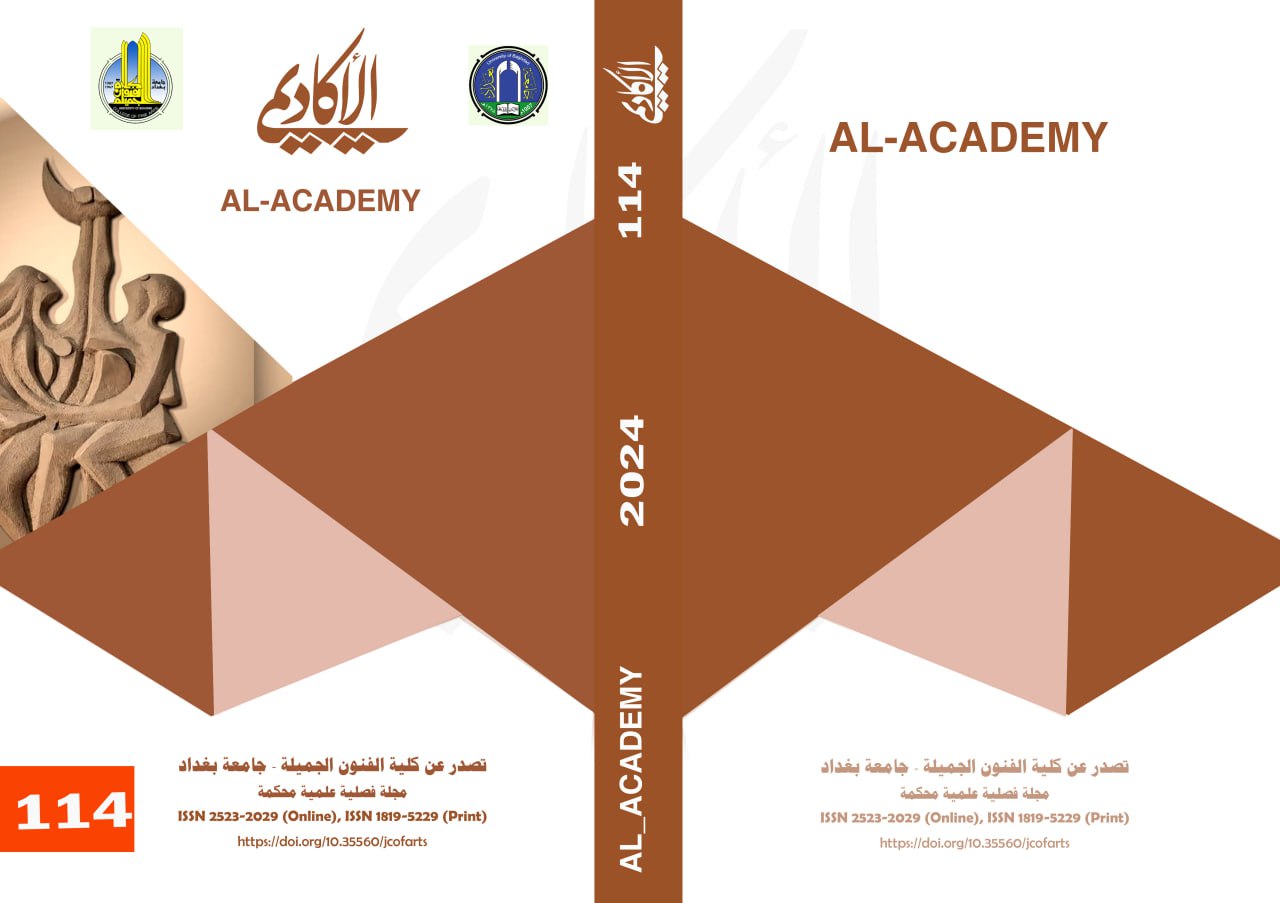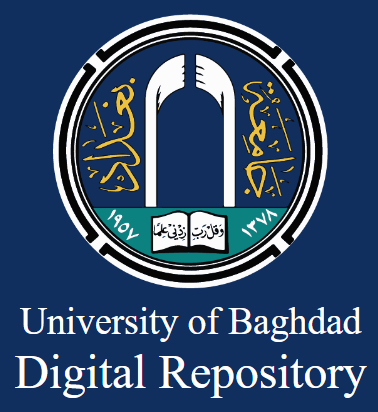Educational employment of the evil character in school theater texts
DOI:
https://doi.org/10.35560/jcofarts1521Keywords:
employment, educational, evil character, school theater textsAbstract
Theatrical art is considered one of the arts most connected to reality as it results from a living relationship existing between it and the ideals, values and customs in which its role in society appears. Theater arose in the embrace of myth and its structural and artistic elements became clear from the depths of the myth, and from it the necessity of theater in social life appears. It plays a major role in raising awareness, guiding, and enlightening people, as it is the most influential of the arts, and the theatrical performance is not complete without the receiving viewer, who in turn interacts with the theatrical text and the theatrical performance, as the actors embody an aspect of the human experience in front of the viewer, thus adding to his knowledge balance and influencing his performance. His psychology and behavior have changed, and his cosmic outlook and life situations have changed, and here the role of theater appears in addressing the issues of societies, as he is destined to live what a person lives in life. The goal of the research: to reveal the educational use of the evil character in school theater texts. The second chapter includes two sections: the first: the evil character, and the second: employing the evil character in the theatrical text educationally. As for the research sample, the intentional sample was adopted to serve the course of the research and its directions, and the most important results and conclusions.
- She emphasizes the importance of faith and goodness through her practice of ingratitude and evil.
2. The writer of the theatrical text has the ability to employ and mix the evil character with the political and social reality that the individual lives, and in it situations and events can be borrowed and adapted into the text to show the evil conditions caused by wars, destruction, and division and their impact on society
References
Al-Aqsra, Y.-H. (2010). 25 Difficult and Unbearable Personalities: How to Deal with Them. Cairo: Dar Al-Haram Heritage Publishing.
Al-Bayati, M. (1988). The Three Dimensions of theatrical Personality - An Experimental Field Study. University of Baghdad, College of Fine Arts, unpublished Master’s Thesis.
Al-Kubaisi, W. (1987). Research Methods in Behavioral Sciences. Baghdad: Press of the Ministry of Higher Education and Scientific Research.
Al-Miqdadi, F. (1984). School Theater. Damascus: Dar Al-Jalil for Printing and Publishing.
Al-Shamali, N. (2015). The five factors of personality and their relationship to depression among patients attending the Gaza Community Center. Palestine (Gaza Strip): Islamic University, Gaza Mental Health Program. (Master's thesis).
Al-Takarli, N. (1979). Trends in Contemporary French Literary Criticism. Baghdad: Al-Hurriya Printing House.
Asaad, S. (1988). theatrical personality. Kuwait: National Council for Culture, Arts and Literature.
Awaida, K. (1996). The Year of the Soul between Personality and Thought. Beirut: Dar Al-Kutub Al-Ilmiyyah.
Berlson, B. (1952). Content Analysis in Communication Research. New York: Heffner Press company.
Cooper, J. (1974). Measurement and Analysis of Behavioral Techniques. U.S.A: Charmless Merrill: Columbus, Ohio.
Daghman, S.-D. (1973). The Historical Origins of the Origins of Drama in Arabic Literature. Beirut: Dar al-Ahad.
Ezzedine, B. (1992). Personality in Moroccan Theater - Structures and Manifestations. Kingdom of Morocco: Ben Zahir University, Faculty of Arts and Human Sciences.
Fisher, E. (1956). National Survey of Beginning Teacher. Holt: New York.
Jarjis, I.-A. (1987). The prevailing values in children’s plays presented on the Iraqi stage for the period 1980-1986. Baghdad: University of Baghdad, College of Fine Arts, Department of Art Education, unpublished master’s thesis,.
Kati, E. (2009). Artistic and educational employment of music and singing in school theater performances. Baghdad: University of Baghdad, College of Fine Arts, unpublished master’s thesis.
Kerlinger, F. (1986). Foundations of behavioral research. New York: Holt, Rinehart and Winston.
Rajeh, A. (1968). The Fundamentals of Psychology. Cairo: Dar Al-Katib Al-Arabi for Printing and Publishing.
Saliba, J. (1982). The Philosophical Dictionary. Beirut: Lebanese Book House.
Scott, W. (1962). Introduction to Psychological Research. New York: B.N.
Suleiman, N. (2005). Teaching Children Drama, Theater, Plastic Arts, and Music. Amman: Dar Safaa.
Taha, F. (P.T). Dictionary of Psychology and Psychoanalysis. Beirut: Arab Renaissance House for Printing and Publishing.
Thales, A. (1982). The Book of the Art of Poetry. (I. Hamada, Trans.) Cairo: Anglo-Egyptian Library.
Zahran, H. (2005). Mental Health and Psychotherapy. Egypt: World of Books.














